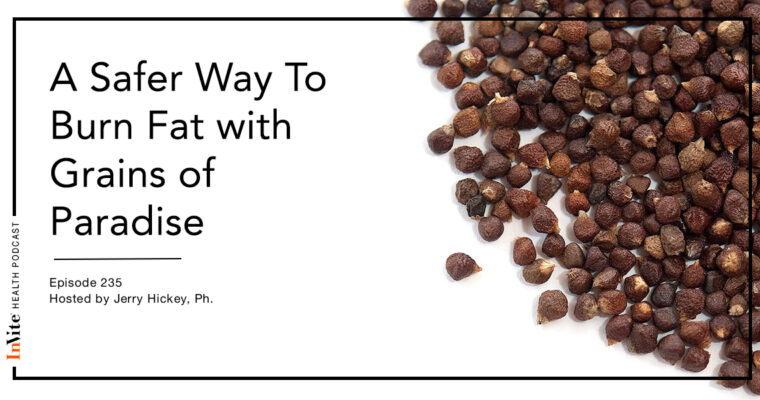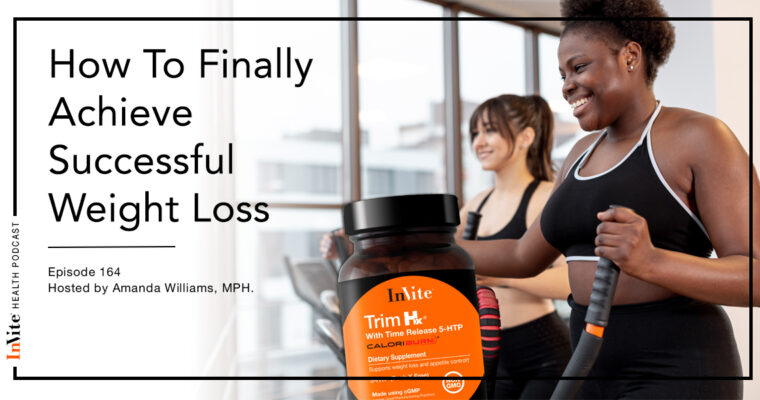Invite Health Podcast, Episode hosted by Amanda Williams, MPH
Subscribe Today!
Did you know that for the average American, during the fall and winter months, it is not uncommon to gain at a minimum 5 pounds? We can blame a lot of that on holiday foods and different things like that, but we also know that we certainly shift our activity level during the colder months. If you are in the northeast, if you are in the midwest, you are probably not as active. You’re bunkered down trying to stay warm. We know this can have a long-lasting effect on our metabolic rate. It can also have an effect on the amount of weight that we gain.
When you are staying at home more often than you have in the past, due to COVID restrictions that are still widely common throughout the country, maybe you’re not going out and being as physical as you used to be. Perhaps you are finding yourself not eating the best foods because of stress and anxiety. There’s different reasons as to why we make these alterations to our normal routine that can really have long-lasting effects on weight gain.
What can we do to adhere to a healthy lifestyle during the fall and winter?
We at InVite® Health are not only experts when it comes to nutritional supplementation, we actually offer a complete wellness approach. I think this is very important because sometimes people are unaware of this. We have all these great things that you can have as part of your wellness arsenal. When you think about cooking healthy, we have a smokeless grill, we have a steamer, we have all of these things that can help you on that pathway to overall wellness.
Chromium Supports Healthy Weight, Muscle & Blood Sugar – InVite Health Podcast, Episode 199. Listen Now >>
We also have really great things that can help to support your physical activity at home. We have the TRX Home System, and this is absolutely just wonderful. They are the leaders when it comes to home workouts. It doesn’t matter if you are a beginner in your fitness journey or if you are more of an expert when it comes to your physical activity. What we know about the TRX system is it’s a very simplified approach to training.
We also offer the Garmin and Fitbit to help you track your progress. To learn more about the products InVite® Health can help you add to your wellness routine, tune into the full podcast episode or click here to learn about the InVite® Wellness Program.

We can also partner these tools up with different nutrients that help to optimize the way that our body is responding to times of stress at the same time we’re trying to push ourselves to allow for normal thermogenesis, which is fat burning, and energy creation.
We can look at something like ATP, that is that direct energy that is made at that cellular level. That’s adenosine triphosphate. Taking ATP as a supplement can really help to enhance the body’s energy production. This is key because when we talk about exercise and stress, we know that the body can start to deplete its sources of energy. By adding ATP supplementation in, this can really not only enhance your actual workouts and help to support muscle mass and strength, but also when we talk about that energy production which is yielded throughout the entire body. The more energy that we have, the better off we feel, which is why the ATP Hx® from InVite® Health really is considered this exercise enhancer because it’s giving you the cellular ability to generate energy.
We can also utilize things such as carnitine to help to facilitate the movement of essential fatty acids from the exterior of the cell to the inside of the cell so they can be made into energy. That mitochondrial energy production is really what we’re after.
Whey Protein: More Than Just Muscles – InVite Health Podcast, Episode 198. Listen Now >>
Another key, powerful antioxidant in the human body that starts to diminish with age is coenzyme Q10. Incorporating coQ10 during this time of fall and winter is also a very good idea because we want to be able to allow all of the cells throughout the body the ability to make that ATP. That is so very important, especially during the fall and winter when we are more prone to that cellular dysfunction, as well as oxidative stress and weight gain.
All of these things are things that we can certainly incorporate in. We have a complete wellness program available to you through InVite® Fitness. Across the board, it’s home workouts, activity trackers, healthy lifestyle approaches, all of these ways that you can allow yourself to have a comprehensive approach to your longevity and weight management.
Thank you for tuning in to the Invite Health Podcast. You can find all of our episodes for free wherever you listen to podcasts or by visiting www.invitehealth.com/podcast. Make sure you subscribe and leave us a review! Follow us on Facebook, Twitter and Instagram at Invite Health today. We’ll see you next time on another episode of the Invite Health Podcast.










